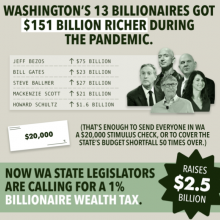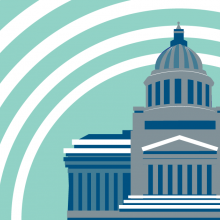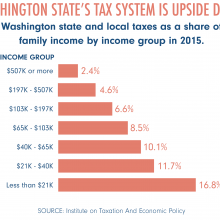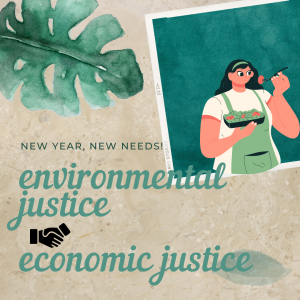
NW Harvest and All In had such an awesome time partnering with Our Climate for their New Year, New Needs webinar series. We spent an afternoon talking about the intersections of economic, environmental and food justice. Missed it? No worries- we have the recording for you!
Webinar Video: Fixing WA's Upside Down Tax Code
Our Lead Organizer, Bennet Vining, and NW Harvest Movement Building Manager, Chris Suh, talked about economic justice grounding their work in their respective fields. Environmental and food justice are often not included in tax reform conversations, so we gathered some of their take home messages for you:
The bottomline is that our tax system is racist and leaves BIPOC working families paying far more of their income in taxes than wealthy, white families.
What does environmental justice have to do with this?
Bennet shared that environmental justice is many things. It is:
- Community autonomy - we have to invest in community driven solutions.
- Recognizing climate change is not a future problem but is affecting BIPOC communities now. During the wildfires, our farmers were forced to work in fields through the hazardous air quality and our many homeless folks couldn’t find safe housing.
- Recognizing that low income communities can’t access an environmentally friendly lifestyle, like buying local and organic foods.
- Keeping large corporations accountable for their large contribution to climate change!
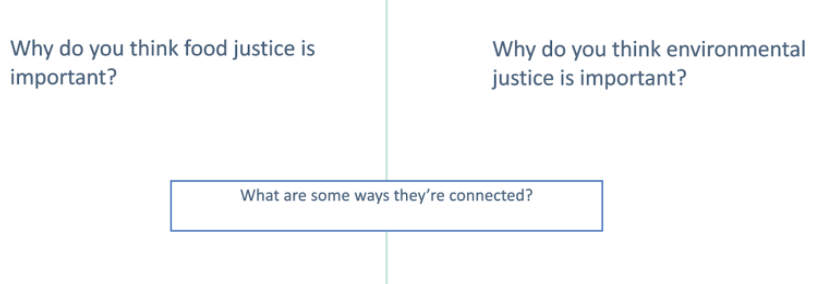
Chris walked us through his journey through food justice and accessibility and how he got to NW Harvest.
“One of the things I’ve learned from working at NW Harvest is that nutritious, ethnically appropriate foods is not what circulates through the emergency food system. What goes into the emergency food system is pretty much shelf stable and high calorie foods- which are probably high in preservatives and sugars. The health issues in BIPOC communities, specifically Black and Indigenous communities, are not helped by the emergency food system. Part of food justice is ensuring healthy food accessibility to these communities.”
He also shared that ensuring these healthy foods looks like taking care of our lands and our farmers.
So where does our tax system come in?
Our tax code has to stop favoring large corporations and has to stop perpetuating poverty in BIPOC communities. We need investments into communities that allow for wide accessibility to healthy foods and sustainability. Large corporations make bank off of their contributions to climate change- we can start keeping some of these wealthy folks accountable by taxing them accordingly. At the end of the day, we need reinvestments into communities and divestments from racially oppressive structures.
What can you do?




